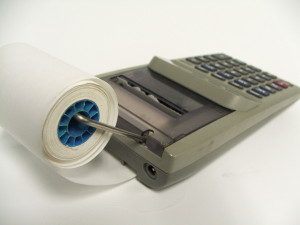On behalf of Law Offices of Richard Mucci posted in Business Litigation on Thursday, July 7, 2016.
Many businesses include alternative dispute resolution provisions as a standard part of their contracts. Sometimes, however, one party would prefer to litigate its claims against the other. Under Massachusetts law, a party cannot be required to arbitrate any claim that is not covered by the agreement to arbitrate.

The Massachusetts Appeals Court recently considered whether an agreement to arbitrate applied to claims that arose from services performed under a previous contract in the case of Merrimack College v. KPMG LLP. The college alleged malpractice against an accounting firm, based on an alleged failure to detect serious irregularities in the financial aid office in fiscal years 1998 through 2004. The defendant accounting firm moved to compel arbitration, based on a dispute resolution provision in its 2005 services agreement with the college. The trial judge denied the motion, and the defendant appealed.
The parties had signed an annual service agreement each year in the form of a letter agreement sent by the defendant to the plaintiff. None of the “engagement letters” from 1998 through 2004 mentioned arbitration. The defendant relied on language in the engagement letter for fiscal year 2005. The 2005 agreement set forth the auditing services the defendant would provide. The 2005 agreement also included a two-tiered mandatory alternative dispute resolution provision for “[a]ny dispute or claim arising out of or relating to the engagement letter between the parties, the services provided thereunder, or any other services provided by or on behalf of [the defendant]…”
The Appeals Court pointed out that the dispute resolution provision applied to disputes that arose from or related to three categories: the engagement letter, the services provided under the engagement letter, and any other services provided by the accounting firm. The defendant conceded that the services provided under the previous engagement letters would not fall under the first two categories, but it argued that claims arising from those services did fall under the third category.
The Appeals Court acknowledged that the specific language could be interpreted broadly enough to include past services, if taken out of context, but contract language must be interpreted in the context of the entire contract. An interpretation is not necessarily reasonable just because it is possible. The Appeals Court found that the only reasonable interpretation of the “any other services provided” language within the context of the agreement was that it referred to services to be performed after the execution of the agreement. The Appeals Court stated that the defendant could have easily included express language making the provision apply retroactively if that is what it intended.
The defendant further argued that the issue of whether the plaintiff had given up its right to litigate the claim had to be decided through arbitration. This argument was based on language in the 2005 engagement letter that stated that any issue regarding the applicability of the dispute resolution procedures or the extent to which a dispute is subject to arbitration would be governed by the Federal Arbitration Act and resolved by the arbitrators.
The Appeals Court noted that courts do not defer the issue of arbitrability to arbitration unless the evidence that the parties agreed to do so is clear and unmistakable. Before ordering arbitration, the court must be satisfied that the parties agreed to arbitrate the particular dispute. The Appeals Court found there was no clear and unmistakable evidence that the plaintiff had agreed that arbitrators must resolve whether disputes arising under prior agreements were subject to the arbitration. Furthermore, since the plaintiffs had not agreed that prior agreements were subject to arbitration at all, the arbitration procedures in the agreement did not apply.
If you are facing a business dispute, an experienced Massachusetts business litigation attorney can advise you about whether you have a valid arbitration agreement in place. Contact the Law Offices of Richard Mucci at (781) 729-3999.
